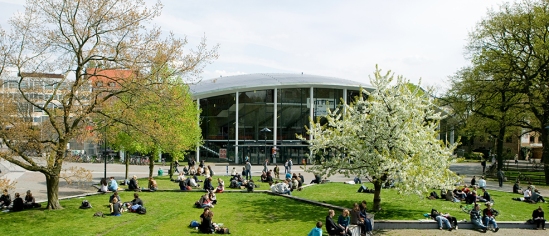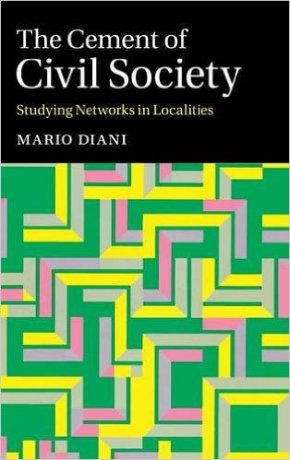The Standing Group on Political Networks of the European Consortium for Political Research – ECPR – invites proposals for papers and full panels to be included in the program of the 12th ECPR General Conference, to be hosted on 22-25 August 2018 at the University of Hamburg, Germany.

This Section aims to bring together methodological, theoretical or empirical papers investigating the role of networks in political and policy processes. We particularly welcome contributions to the following panel topics:
Panel 1 – Social Movement Networks (Chair: Mario Diani, University of Trento, email: mario.diani@gmail.com)
The network perspective has emerged in the last twenty years as a flexible and powerful tool to analyze the diversity, dynamics, and complexity of collective participation. In spite of its constant growth, relevant issues remain open to further investigation – such as the link between the political context and the structure of movement networks; the complex mix of organizational and individual agencies within collaboration and conflict structures; the progressive redefinition of mobilization predictors. The Panel invites applications of network analysis to the study of social movements, protest and participatory networks from a range of perspectives, from mechanisms of individual recruitment to inter-organizational alliances, cultural and discursive dynamics.
Panel 2 – Comparing Political Networks (Chair: Manuel Fischer, University of Bern, email: Manuel.Fischer@eawag.ch)
Comparing political networks over time and space is a powerful strategy to support causal explanations on the antecedents or consequences of network structures. Comparisons over space can include cross-country comparisons or within-country comparisons across regions or policy sectors. Comparisons over time can include network observations at several discrete time points or can be based on the dynamic assessment of network evolution. Despite the potential benefit of such comparisons to our understanding of political networks, the functioning of political systems, public policy-making, and so on, empirical applications of such research designs have remained rare. The Panel thus invites Papers with an explicit comparative research design related to any type of political networks.
Panel 3 – Networked Publics in the Age of Hybridity (Chairs: Gabriella Szabó, Hungarian Academy of Science, email: Szabo.Gabriella@tk.mta.hu, and Pawel Matuszewski, University of Warsaw, email: matuszewski.pawel@wp.pl)
The Panel aims to examine the application of social network analysis into an arena of political science – political interactions. Inspired by the thesis of hybridity and the networked age, it seeks to comprehend the functions of connectivity in public discourses. Today’s political communication ecosystem is more than a convergence of offline and online: it is the transcendence into a new form of interactions by allowing for a rapid conversation on politics across multiple platforms with virtual proximities between the actors which support the transfer of knowledge. The Panel welcomes contributions that map various elements that determine the flow of political messages as well as investigations of viral politics and exploration of the network structures binding political issues, actors and discourses together.
Panel 4 – From Texts to Networks: Semantic, Socio-semantic, and Discourse Networks (Chairs: Lukáš Lehotský, Masaryk University, email: llehotsky@yahoo.com, and Sebastian Haunss, University of Bremen, email: sebastian.haunss@uni-bremen.de)
Collecting data on political networks is a considerable challenge. Significant resources are required to obtain political networks, while in many cases, collecting network data proves nonviable. At the same time, previously unthinkable volumes of texts containing information over political actors and their connections become publicly available. This Panel wants to address and showcase research activities, which are tapping texts to obtain discourse, semantic, and socio-semantic networks. The Panel will show how network research might benefit from text analysis methods used both in traditional political science as well as outside of the field. Contributions which 1) use text as data for political networks; 2) utilize various text analysis approaches to find ties between actors; or 3) combine text analysis with social networks, are invited.
Panel 5 – Application of Network Analysis to Political Changes (Chairs: Valentina Kuskova, National Research University Moscow, email: vkuskova@hse.ru, and Dmitry Zaytsev, National Research University Moscow, email: dzaytsev@hse.ru)
The research of political changes has been traditionally focusing on specific levels as well as types of analysis. However, political changes are complex phenomena consisting of diverse and interlinked actors and structures. Thus, the integrated methodological approach combining contemporary advanced theories and sophisticated analytical methods is needed to model the political change in its complexity. Newest developments in network analysis methods allow modeling the mechanisms of political changes in a way that avoids both simplistic causal explanations based on few predictors as well as over-generalizations attributing them to dynamics of macro-phenomena and political systems. The Panel welcomes Papers using a variety of methodologies that go beyond the simplified ‘linear’ understanding of political changes and model them as multidimensional, multilayer, and interdependent systems.
Panels 6/7 – Climate Policy Networks: Emergence, Evolution, and Policy Outcomes I/II (Chairs: Maria Brockhaus, University of Helsinki, email: maria.brockhaus@helsinki.fi, and Monica Di Gregorio, University of Leeds, email: m.digregorio@leeds.ac.uk)
Climate change and extreme weather events across the globe call for major societal responses. With the Paris agreement, countries are supposed to provide nationally determined contributions, and a variety of performance-based mechanisms are encouraged under the agreement. Processes of transformational change within and across policy domains and networks are required to realize effectively, efficiently and equitable emission reductions and increased adaptive capacities. We see new discourses emerging, and new actors entering new policy coalitions, joining efforts to break away from current business as usual pathways. However, barriers and resistance within policy networks towards such changes are also visible. This Panel calls for contributions that analyze climate policy networks and their characteristics to understand the emergence (or lack) of new policies and outcomes to achieve climate goals.
For more information, please consult the Section website here.
If you are interested in proposing a Paper on one of the topics listed above, please contact the corresponding organizer by February 1st, 2018. Alternatively, you are also welcome to propose a standalone Paper or a full Panel on another topic. Anyone wishing to propose a standalone Paper will need to propose it to a specific Section. Then, if accepted, the Section chair will allocate it to the appropriate Panel. As for Panel proposals, they must include a minimum of four Papers and each Paper must include the Paper title, an abstract and author(s) details.
The procedure for submission is outlined here. Although the call for full Panels and standalone Papers will remain open until 15 February 2018 on the ECPR website, proposals to specific Panels should be mailed to the corresponding organizer by February 1st in order to allow the time to coordinate the organizers’ efforts.
Please feel free to contact the Communication Committee (politicalnets.ecpr@gmail.com) for further information.
***
Political Networks ECPR Standing Group
Mailing list: politicalnetsecpr@googlegroups.com
Twitter: @politicalnets
Communication Committee: politicalnets.ecpr@gmail.com




